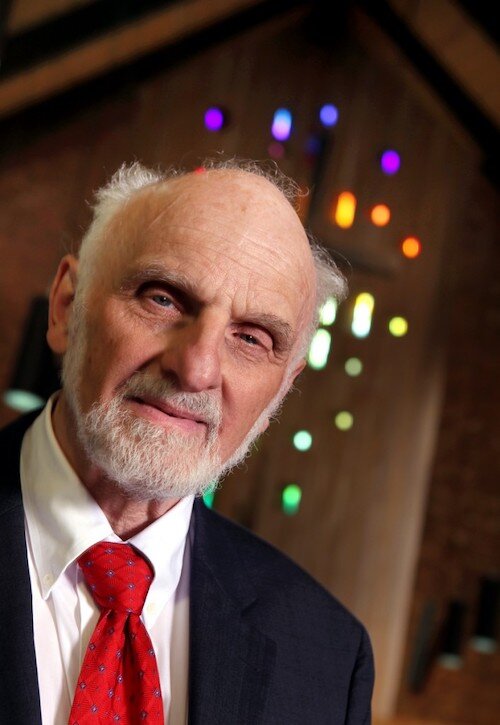Walter Brueggemann Column
Church Anew is honored to host Walter Brueggemann as our featured columnist. We look forward to sharing Walter’s work with church leaders and faithful people worldwide. May his powerful and reflective writings inspire, energize, guide, and comfort you.

We Count Our Days
Maybe, as the TV ad has it, “Age is simply a number.” But I think not. It is our best human way of marking our reliance on God’s grace and living it back to God in gratitude as best we can.

Defying Erasure
In Christian confession, the ultimate moment of imperial erasure is on Good Friday. By sundown on that Friday, the emperor, the governor, and the Jewish king, Herod, all thought they had effectively erased and eliminated the threat of the alternative governance that Jesus embodied.

The City as “Container”
For the writer of the Book of Revelation, this promise is not in a never never land of another world; it refers to a new city that will displace the tired violent city of Babylon (Rome).

Deserves to be Paid
It cannot be unimportant to the church that the long-running story of God’s engagement with the human economy begins in the narrative of a labor dispute.

Money Talk in the Church
It is unmistakable that the Torah designation of covenantal economics persists in the narrative reflection of the New Testament. It remains for the church to recover this awareness about the economy in our tradition, and to recover the courage necessary to contest the predatory practices of our economy that have become normative in our society.


The Unending Work of Contradiction
Twice in the gospel narrative Jesus declares the ultimate either/or of his life and teaching: “You cannot serve God and wealth.”

Pathetic Imagination
Pathetic imagination is incapable of hosting an alternative world and remains quite satisfied to have its sphere of possibility circumscribed to the small world in front of us. Thus in the confines of pathetic imagination, the claims of prophetic imagination are outrageous and incredible.

A Revolution Hurried Along
We prefer to have “only God.” But the God of the gospel is not on offer in that way. That is why Jesus insisted that we cannot have only one “great commandment.” There are always two.

The Fundamental Dilemma
The crisis to be addressed is the elemental recognition that we are double-minded, and the double-mindedness is ultimately exhausting: You cannot serve God and wealth.

The Dispossessing Power of Violent Greed
Naboth continues to cry out in every verdict of dispossession. His cry sounds among us in many different cadences and in many different dialects, including among us the cadences and dialects of Black Americans. What a work for the church to be listening and responding to that shrill cry!

Start Me with Two!
The wealthy, the powerful, and those who produce the poison of our planet count on the rest of us to be compliant, even if in dissent. The spell of such fearful compliance can be and will be broken only by the few good women and men who dare to march to a different drummer, work from a different script, and act in ways congruent with their conviction of a world held in the good hands of the creator.

An Iconic Act of Civil Disobedience
The absolute prohibition and the qualification that follows together exhibit the characteristic work of Torah teaching that must mediate between absolute theological, covenantal claims and the reality of lived life.

On Seeing “the Enemy” a Second Time
It is the work of the church to bear witness to the unnoticed reality of war: every soldier has a mother. Every family grieves the death of a son-soldier, even enemy families.

On Gerrymandered Texts
Such an accent on the power of God, moreover, has been a long-running seduction for the church, as we have imagined the power of God to be not unlike the worldly power of mighty empires and imperial rulers. Insofar as the church has been seduced in this regard, attentiveness to the “weakness of God” may be a deep and significant corrective.


Saved in and through Weakness
Such an accent on the power of God, moreover, has been a long-running seduction for the church, as we have imagined the power of God to be not unlike the worldly power of mighty empires and imperial rulers. Insofar as the church has been seduced in this regard, attentiveness to the “weakness of God” may be a deep and significant corrective.




